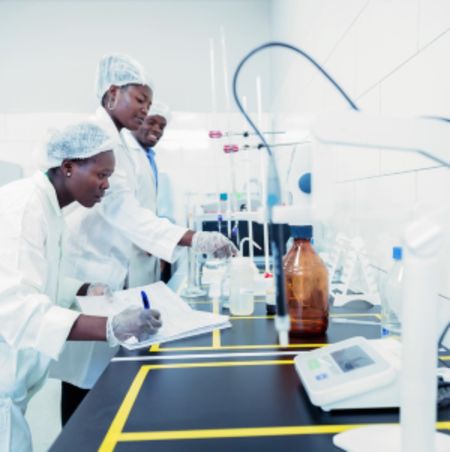The COVID-19 pandemic highlighted the global issue of insufficient access to diagnostic tools. In Africa, limited access to affordable and accessible diagnostic tools significantly hindered efforts to track and contain COVID-19. It's crucial to recognise that this issue is not specific to the pandemic; rather, it persists as an ongoing challenge in the region.
PATH has been actively engaging with country partners and local stakeholders to discuss effective strategies for scaling up African manufacturing. One promising solution that has emerged is to establish sustainable financing for regional manufacturing.
PATH aimed to bridge the gap between the needs of manufacturers and available investor funding. The team has developed a comprehensive local diagnostics company dashboard, featuring over 150 diagnostics developers from around the world. PATH engaged in discussions with numerous local manufacturers to understand and address the pressing need for promoting local manufacturing.
Here is a summary of the insights from the local manufacturers:
Health care resilience
Increasing local diagnostics manufacturing will lead to a more accessible, stronger and equitable health care system. Without diagnostic tools, one cannot diagnose the disease and treat it effectively.
By ramping up local manufacturing of diagnostic tools, African health systems can reduce their overreliance on international partners, whilst also ensuring a consistent supply of diagnostic resources for all citizens. As a result, vulnerabilities are reduced, and health systems can maintain essential health care services.
Accessibility
Disparities in healthcare access between urban and rural areas in Africa are a pressing concern. Rural areas are not often granted the same access. The journey to access medical care can be not only costly but also time-consuming. When the average working person may have to forge a day’s wage to travel, many individuals opt to delay testing and treatment. Local manufacturing means increased diagnostic tools can be distributed more equitably, increasing accessibility across the region.
Affordability
Many countries find themselves in a predicament where they are paying more for diagnostic tools due to inflated pricing and import fees. Moreover, they often lack control over the quality and timely arrival of these crucial tools. A viable solution is to localise both knowledge and manufacturing.
Local manufacturers have consistently emphasised that even small investments in infrastructure can yield substantial benefits. While the initial cost of investing in the infrastructure for local manufacturing may appear burdensome, it is essential to recognise that this investment paves the way for long-term cost-effectiveness.
Economic benefits
Investing in local diagnostic manufacturing can contribute to economic growth in the region. Bringing diagnostics manufacturing to the local level not only strengthens healthcare infrastructure but also taps into local talent and knowledge of disease areas. It creates job opportunities, fosters technological innovation and increases knowledge transfer.
Local diseases and treatment
Africa is a host to a large number of infectious diseases. African decision-makers are more aware of what works best for their people and what diseases impact their populations most. Having diagnostic tools manufactured in-country gives the opportunity to medical providers to be proactive in their defense against infectious diseases, rather than just respond after an outbreak occurrence.
Source: PATH
Image Credit: iStock



















